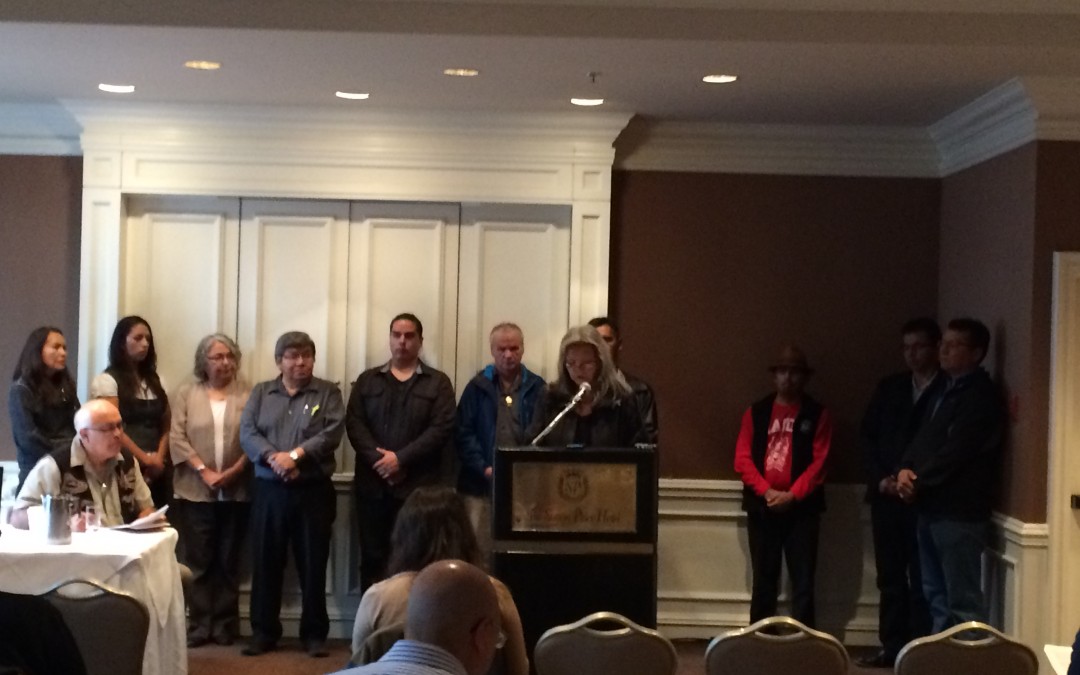NORTHERN FIRST NATIONS LEADERS DEMAND NEW APPROACH TO RESOURCE DEVELOPMENT
Current system is broken – tears apart aboriginal communities, denies economic
benefit to all British Columbians
FOR IMMEDIATE RELEASE
September 8, 2015 (VANCOUVER) – The B.C. and federal government’s narrow and shortsighted approach to resource development on First Nations lands is tearing apart aboriginal communities and draining their limited financial and human resources – and must be changed, says a group of First Nations leaders.
The demand for reform comes ahead of critical talks taking place this week in Vancouver, known as the B.C. Cabinet and First Nations Leaders’ Gathering. First Nations leaders from across the province will be there seeking significant improvements to the current development process, which continues to deny their peoples’ rights affirmed by the courts as well as the principles under the internationally recognized principle of “free, prior and informed consent.”
“The concept of ‘free, prior and informed consent’ is not only a moral and legal imperative, it is now a logical and practical economic imperative,” said Chief Na Moks of the Office of the Wet’su’weten . “We are tired of spending so much of our finances and time fighting for rights that we know to be ours.”
The leaders outline three main reasons why the province’s current development approach is failing: First, no “new relationship” has been established, despite continuing successful court challenges. Second, the current approach to the issue of cumulative environmental impacts isn’t working. An example is the massive disruptions expected on The West Moberly First Nation territory from the development of Site C. Third, the provincial and federal approach to major project approval and environmental review processes don’t do enough to protect the environment.
“We are not opposed to development, and we are often leaders in securing appropriate development that benefits not only our communities, but also all British Columbians,” said Donnie Wesley, the Tsimpsian hereditary chief who has a camp on Lelu Island.
Chief Roland Willson of the West Moberly First Nation said First Nations want a more civil, legally consistent, and logical approach to major project development.
“This new approach is needed and must recognize our laws and legal orders, and address the failures we have described ,” said Chief Liz Logan of the Fort Nelson First Nation “This would begin real and measurable progress towards reconciliation, and be of benefit to all British Columbians and future generations. Until then, our territories cannot support any more major projects, from natural gas drilling programs and pipelines to mines and large forestry operations, until these matters are properly addressed and our place in this country is protected.”
For more information please contact:
Gerald Amos geraldvamos@gmail.com; Nancy McHarg, nmcharg@hoggan.com, 604 760 4366

